July 2
Barbara G. Walker
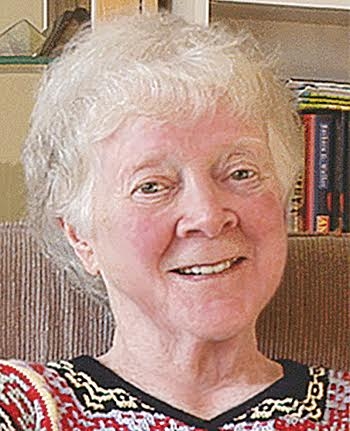
On this date in 1930, Barbara G. Walker was born in Philadelphia. In early childhood, she had her first disappointment with religion, when a minister told her that her deceased pet dog wouldn’t go to heaven. She threw an uncharacteristic tantrum, telling him: “I don’t want anything to do with your rotten old God and nasty old heaven.” First reading the King James bible as a young teenager, she decided: “It sounded cruel. A God who would not forgive the world until his son had been tortured to death — that did not strike me as the kind of father I would want to relate to.”
She majored in journalism at the university of Pennsylvania, married research chemist Gordon Walker and moved to Washington, D.C., where she worked at the Washington Star. Relocating to Morristown, New Jersey, she taught the Martha Graham dance technique. She is a knitting expert, writing 10 volumes, including the classics Treasury of Knitting Patterns and A Second Treasury of Knitting Patterns. In the mid-1970s she became part of the “new feminist wave,” writing the monumental feminist/freethought sourcebook, The Woman’s Encyclopedia of Myths and Secrets (1983). Her many other books include The Skeptical Feminist (1987), Man Made God: A Collection of Essays (2010) and Belief and Unbelief (2014). An atheist, she has also specialized in debunking irresponsible, New Age assertions about crystals.
"[T]he very fears and guilts imposed by religious training are responsible for some of history’s most brutal wars, crusades, pogroms, and persecutions, including five centuries of almost unimaginable terrorism under Europe’s Inquisition and the unthinkably sadistic legal murder of nearly nine million women. History doesn’t say much very good about God."
— Walker, acceptance speech for the 1993 Humanist Heroine award from the Feminist Caucus of the American Humanist Association
Civil Rights Act Enacted
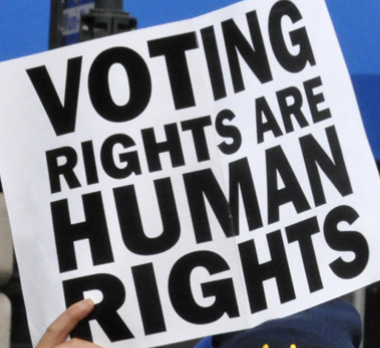
On this date in 1964, the Civil Rights Act was signed into law by President Lyndon Johnson after it passed the Senate by a vote of 73–27 and the House by 289–126. It barred discrimination based on race, religion, color or national origin.
“An act to enforce the constitutional right to vote, to confer jurisdiction upon the district courts of the United States of America to provide injunctive relief against discrimination in public accommodations…”
—
George Sand
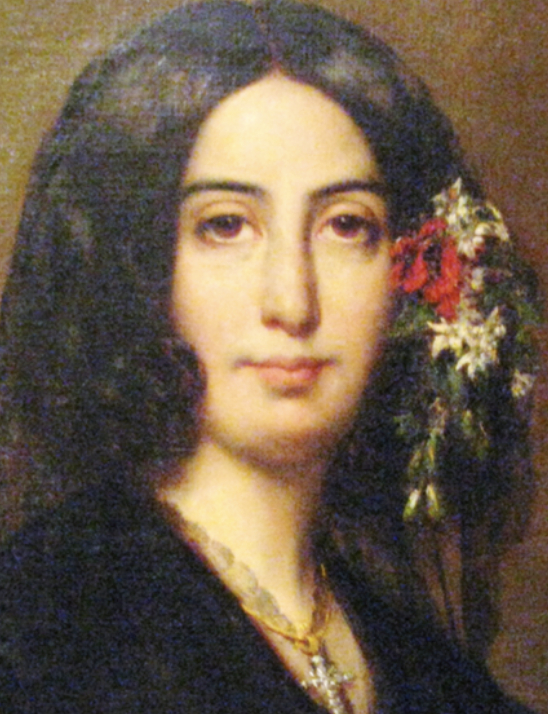
On this date in 1804, George Sand (née Amantine Lucile Aurore Dupin) was born in Paris. Raised mainly by her grandmother, she was taught for three years by the Augustinian nuns, then read widely on her own. She scandalously left her unsympathetic husband, Baron François Casimi Dudevant, whom she married in 1822, to embark on a career as a novelist.
That career took off with the success of her second novel, Indiana (1832). She and Dudevant had a son, Maurice, and a daughter, Solange, before separating in 1835. Unwilling to have her freedom restricted by sexist codes, she adopted the nom de plume “George Sand,” often appeared in public in male clothing and befriended the literarati of her day, becoming a noted celebrity.
She was prolific even for her era of romantic wordiness. Consuelo was a novel in eight volumes and Histoire de ma vie, her autobiography, is 20 volumes. Sand was an outspoken critic of clericalism for most of her life, but invoked “God” frequently in her writings and letters. She went through deistic, spiritualistic and pantheistic stages, but never returned to Christianity.
Her most famous liaison was with the composer Chopin, who, while far more orthodox than Sand in his political views, also refused to return to the Catholic Church. Her enduring legacy is as a rebel and role model living life as freely and fully as men. She instructed there should be no religious rites at her funeral at age 71, which was presided over by freethinker Victor Hugo. (D. 1876)
"[I reject Christianity’s anthropomorphic God,] made in our image, silly and malicious, vain and puerile, irritable or tender, after our fashion."
— Sand, cited by James A. Haught in "2000 Years of Disbelief"
Larry David
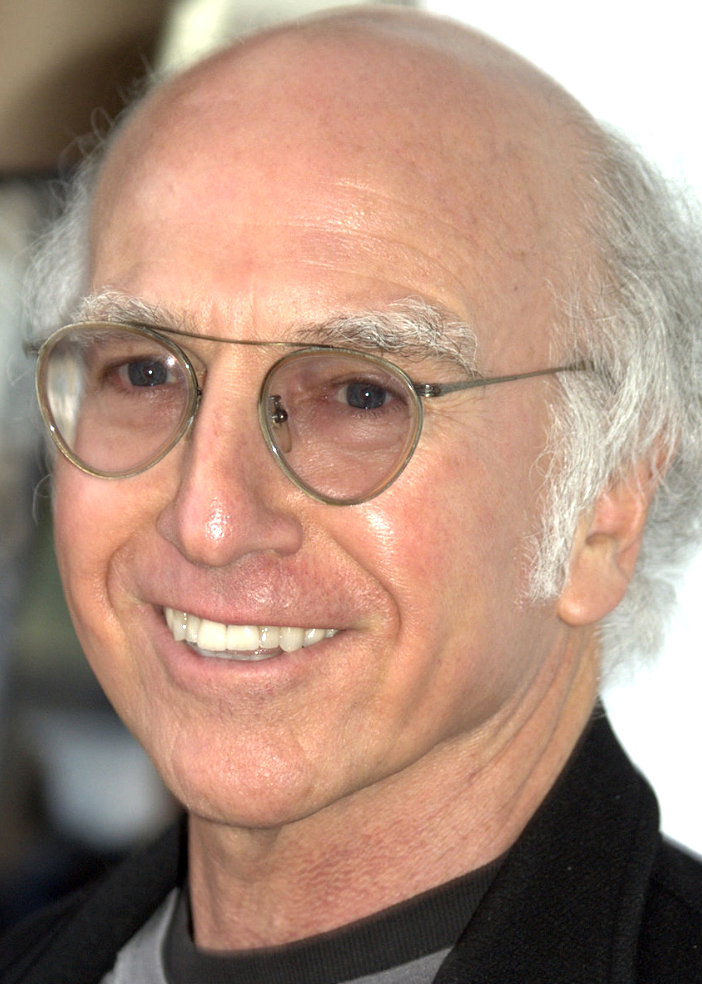
On this date in 1947, entertainer Lawrence Gene David was born in Brooklyn, N.Y., to Jewish immigrant parents: Regina (Brandes) and Mortimer David. After earning a history degree from the University of Maryland and enlisting in the U.S. Army Reserve, he worked as a stand-up comedian and was hired as a writer for NBC’s “Saturday Night Live” TV show.
He teamed in 1989 with comedian Jerry Seinfeld to create a pilot called “The Seinfeld Chronicles,” which became the successful sitcom “Seinfeld” and aired until 1998, winning David two Primetime Emmys for writing and best comedy in 1993. He wrote 62 episodes, appeared occasionally and was the inspiration for the character George Costanze. Syndication of “Seinfeld” earned David an estimated $250 million in 1998 alone.
The HBO Network aired David’s special “Larry David: Curb Your Enthusiasm” on Oct. 17, 1999. The series “Curb Your Enthusiasm,” described on its website as “Larry David, living the good life out in Los Angeles and stumbling through one faux-pas after another,” aired from 2000-2011. After a six-year hiatus, it returned in 2017. A tenth season started airing in 2020.
David married television producer Laurie Lennard in 1993 and was divorced in 2007. They have two daughters, Cazzie Laurel (b. 1994) and Romy March (b. 1996). David is nothing if not irreverent. In Curb Your Enthusiasm: The Book (2006), he is described as an atheist by author Deirdre Dolan.
The online American Catholic urged people to “pray for Larry David” after a 2009 “Curb” episode depicted him urinating so forcefully due to a medication he was taking that it spattered a picture of Jesus hanging in the bathroom at his assistant’s home. He didn’t wipe it off. When the assistant used the bathroom a few minutes later, she noticed the moisture and concluded Jesus was crying. She summoned her mother and they both fell to their knees in prayer.
David apologized for a 2017 “Saturday Night Live” monologue in which he mused whether he would “be checking out” the women in a German concentration camp had he been a prisoner. “I think I would. Of course, the problem is there are no good opening lines in a concentration camp: ‘How’s it going? They treating you OK? You know, if we ever get out of here, I’d like to take you out for some latkes.’ ”
David also wrote and starred in the 2015 Broadway play “Fish In The Dark,” which centered on the death of a family patriarch.
PHOTO: David at the 2009 Tribeca Film Festival; David Shankbone photo under CC 3.0.
“Religion should be made fun of. It’s quite ridiculous, isn’t it? This is how people spend their lives. They have no idea, then they go around as if this is a fact. It’s so insane, you know. If I really believed that stuff I’d keep it to myself, lest somebody would think I was out of my mind.”
— David, New York Times video interview in 2007
Harriet Hall
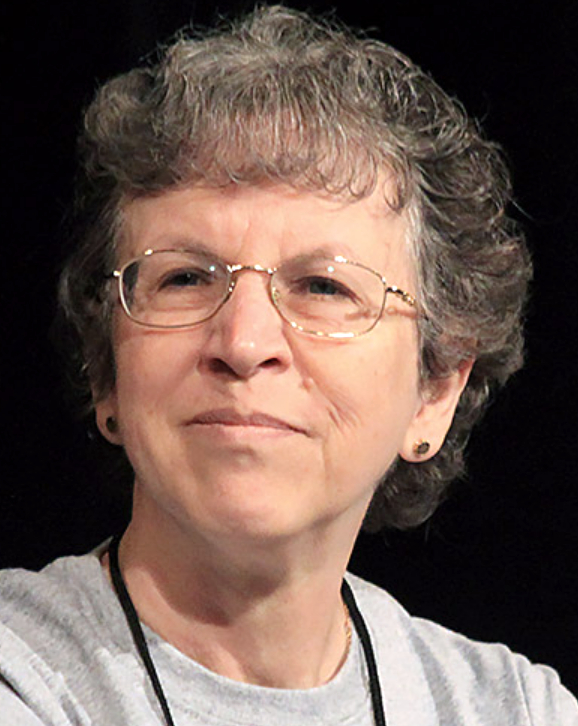
On this date in 1945, physician and science communicator Harriet Anne (Hoag) Hall was born in St. Louis to Edna (Barnes) and Albert Hoag. She grew up in Seattle with three siblings. “I began to question the existence of God in my early teens, because of the hypocrisy I observed among my fellow Methodists and because of things I read,” Hall wrote in “Women Aren’t Supposed to Fly: The Memoirs of a Female Flight Surgeon” (2008).
“In looking back, it’s hard to retrace my path, but I remember being impressed by Frazer’s ‘The Golden Bough,’ a book about comparative religions. It made me realize those different religions couldn’t all be right, so maybe they were all wrong; and it explained some of the psychology that might have led humans to invent gods.”
She earned a medical degree in 1970 from the University of Washington, where her father taught, then was commissioned as a first lieutenant in the U.S. Air Force and served for seven years as a general medical officer in Spain. In 1979 she earned her wings as a flight surgeon and was certified by the American Board of Family Practice.
Hall met future husband Kirk Hall Jr. at Francis E. Warren AFB near Cheyenne, Wyo. They had two daughters, Kristin Ann and Kimberly Alexandra. She retired in 1989 as a full colonel at McChord AFB in Washington state after 20 years of service. Her daughters were 4 and 6 then and she wanted to devote more time to raising them.
Hall started writing about science and medicine, including complementary and alternative medicine, in her mid-50s and contributed regularly to the Skeptical Inquirer and Quackwatch. She was dubious about acupuncture and alternative treatments in general: “If it were shown to be truly effective, it would be part of regular medicine.” (The Boston Globe, July 24, 2009)
Her SkepDoc column in Skeptic magazine debuted in 2006 and eventually included over 700 articles. She co-founded the Science-Based Medicine website in 2008 and co-published the college textbook “Consumer Health: A Guide to Intelligent Decisions” in 2013. She started a column in 2018 in Skeptical Inquirer called “Reality Is the Best Medicine.” She published a whimsical children’s book titled “There’s No Such Thing as the Tooth Fairy!” in 2022, having previously coined the term “tooth fairy science” to refer to studying a phenomenon before establishing its existence.
She died in her sleep at home at age 77 in Puyallup, Wash. (D. 2023)
PHOTO: Hall at the Center for Inquiry’s CSICon 2016 in Las Vegas.
“Religion can impact health in good ways, but often it has a bad impact on the health of the believer and also on the health of others. I fully support the right of people to follow any religion or any belief system, but I don't acknowledge their right to impose their beliefs on others. I draw the line when their beliefs cause harm or the deaths of innocent children or when they endanger public health.”
— Hall, "My Journey Into Skepticism" (The Human Prospect, Vol. 6, No. 3, Autumn 2017)
